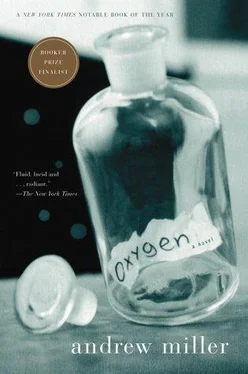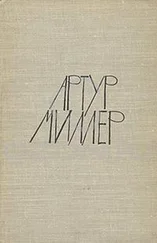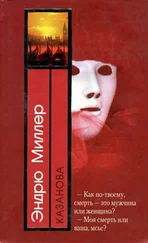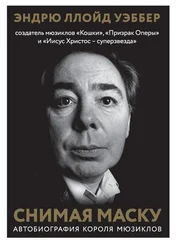‘Have you seen Laurence? Or Franklin?’
‘Not for a week,’ she said. Then added: ‘Someone else was looking for them.’ She pointed towards the back of the bar. ‘Isn’t that Whatshisname?’
At a table by the kitchen hatch, Karol was holding court among a huddle of young men and women, devotees of culture, drawn by the flame of the old writer’s promiscuous charm. He had one of the waitresses on his lap (all highly educated girls) but catching sight of László, he eased her off, stood up on stiff legs, and clasped the playwright in his arms.
‘You look different,’ he said, leaning back to scrutinize the other’s appearance.
‘Even at my age,’ laughed László, ‘I’m still growing a face.’
‘Your age,’ mocked Karol. ‘A boy!’ He turned to the group at the table. ‘Now here is a real artist. Allow me to present Maître Lâszlô Lâzâr, and his faithful companion, Herr Engelbrecht.’
They ordered a lot more wine. Space was made for Lâszlô on the banquette, and he too was lionized with a warmth that made him wonder what it was these youngsters saw, or thought they saw. It turned his head a little. Even now, after so many years, he found it hard to make the connection between what he laboured over so privately in his study and the manner in which he was received on occasions like this. Were they really interested in him? What did they want? But it was too loud for any serious conversation, and Angela, a woman Ingres might have done justice to, ordered them on to their feet. ‘Have you forgotten how to dance?’ she cried. ‘Or do you mean to talk each other to death!’
So they danced, fifty or more, crushed together in the heat and the smoke. Lâszlô found himself nose to nose, hip to hip, with a woman of Middle Eastern looks, a real beauty with a thrillingly stern expression on her face. Karol swayed with the queenly Angela, while Kurt, moving with that sweet, politely sexy style of his, was much in demand with both sexes and all persuasions. There were two accordionists installed now, a pair László had seen before playing on the Métro; children of Ceaucescu or Hoxa, who spent their days scurrying from carriage to carriage with one eye open for the patrols, one ear cocked for a cry of ‘Papers!’. They played some Piaf numbers – ‘Johnny’, ‘La Foule’, ‘Sous le ciel de Paris’ – then gypsy music. Tzigane! They knew what was wanted, and on a night like this any musician could sway a crowd to tears or to frenzy. It was exhausting, but no one wanted it to end. Why stop when there was still beer and wine and cane-liquor to drink? Why stop before the music stopped?
At five o’clock, Angela had had enough. She cleared the bar without much ceremony, though an inner circle of favourites was allowed to linger, drink coffee and regain their senses. László, Kurt and Karol were among the last to go, leaving only a serenely drunken Englishman who apparently lived in the bar, and clearly hoped the party might somehow be made to start again.
Outside, the three friends gathered under the trees that lined the central walkway of the boulevard, and breathed in air cool as tap water. László tilted back his head, sore eyes looking into the great scooped pearl of the morning sky.
‘The floating happiness?’ asked Karol.
‘The floating happiness,’ agreed László, feeling foolish at having to wipe the tears from his cheeks.
‘Once upon a time,’ said Karol, ‘I could simply miss out a night’s sleep. A “white night” hardly troubled me at all, but now…’
They made their slow goodbyes. The shutter at Le Robinet rattled down. Kurt and László seemed like the last people abroad.
‘Home?’ asked Kurt. Then seeing László’s hesitation, he said: ‘Let’s go back, have something to eat, relax a little, and phone them in a few hours. If they were out last night they won’t want us calling on them now.’
The Citroën – László’s prized maroon-and-silver DS23 ‘Pallas’ – was parked outside a charcuterie on boulevard Voltaire, and with László at the wheel they headed south, passing the July column and crossing the river where the last of the night lingered in bruise-coloured shadows under the bridges.
At the apartment they drank fresh coffee and made each other laugh, wondering – in ever-wider loops of absurdity – how the Garbargs had spent the night. Then László stripped off in the bedroom, put on his bathrobe (he favoured a Japanese yukata for the summer), and went to take a shower. He had just worked up a good lather of shampoo on his head when Kurt leaned into the room. László shook the foam from his ears and turned off the shower. ‘What?’
‘Laurence. On the machine. I think you’d better hear it.’
Wrapped in a towel, László hurried to the study and stood dripping on the parquet as Kurt rewound the tape. The message was halting and mostly unintelligible, but there was no mistaking the desperation in her voice. It sounded as if some ferocious undertow was pulling her away even as she spoke. Something had happened, or was perhaps about to happen (it wasn’t clear which). Something very bad indeed.
‘When did she call?’
Kurt checked the Minitel screen on the front of the phone, then looked at his watch. ‘Just over an hour ago. What do you want to do?’
‘You try to call. I’ll put some clothes on.’
In the bathroom he rinsed off the shampoo, then dressed in the same smoky clothes he’d been wearing in Le Robinet. He was back in the study in five minutes.
‘Anything?’
‘Nothing. They’ve even switched off the answerphone.’
‘OK. Let’s go.’
They took the stairs rather than wait upon the stately descent of the elevator, then drove in silence through the littered streets, the car’s long bonnet slicing the air, the needle of the speedometer flickering at sixty as they motored on to an almost traffic-less Beaumarchais. How tender the city looked! The first of the early risers carrying a newspaper or walking a dog. The street cleaners in their green overalls hosing the pavements and opening the sluices; fresh water running in slack silver ropes around the wheels of the parked cars. Impossible to think any crisis could occur at such an hour, and when, pulling up at rue du Deguerry, there was no police van or Samu ambulance, László began to wonder whether he was overreacting, whether the call had been nothing but the sequel to another fight, and the pair of them were upstairs now, sleeping it off and snoring like ogres.
He left the car by the church, crossed the road to the street door and tapped in the code. Inside, the courtyard was scrubbed and chilly. The gardienne would not be in for another hour or two. A neat little ‘fermé ’ sign hung from a nail on the door of her office.
They found Laurence in the gloom of the third-floor landing. Two female neighbours were in attendance, sombre, greyhaired women in slippers and bed-jackets. László vaguely recognized one of them. Madame Bassoul. Blumen. Some such.
‘Where have you been ?’ asked Laurence. She slapped him, hard, then put her arms around his neck.
‘Is Franklin upstairs?’ he asked.
‘He has a gun, monsieur,’ said the woman László recognized. ‘Like so…’ She indicated with her hands the dimensions of the weapon. ‘We wanted to call the police, but Madame has expressly forbidden it.’
‘He pointed it at me ,’ said Laurence, shuddering at the memory. ‘I had to run out of the door. He’s crazy now. Completely crazy.’
She looked very close to collapse. László stroked her hair. ‘You know he wouldn’t have used it.’
She pushed him away. ‘You think I’m inventing this?’ Her voice broke in a sob. ‘He’ll use it on himself, László. I’ve been waiting for the noise. I can’t stand it.’
Читать дальше












